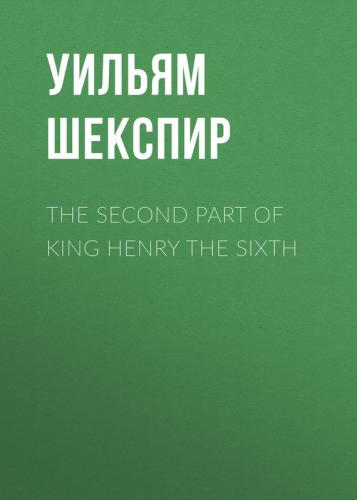SALISBURY. Pride went before, ambition follows him.
While these do labour for their own preferment,
Behoves it us to labour for the realm.
I never saw but Humphrey Duke of Gloucester
Did bear him like a noble gentleman.
Oft have I seen the haughty Cardinal-
More like a soldier than a man o' th' church,
As stout and proud as he were lord of all-
Swear like a ruffian and demean himself
Unlike the ruler of a commonweal.
Warwick my son, the comfort of my age,
Thy deeds, thy plainness, and thy housekeeping,
Hath won the greatest favour of the commons,
Excepting none but good Duke Humphrey.
And, brother York, thy acts in Ireland,
In bringing them to civil discipline,
Thy late exploits done in the heart of France
When thou wert Regent for our sovereign,
Have made thee fear'd and honour'd of the people:
Join we together for the public good,
In what we can, to bridle and suppress
The pride of Suffolk and the Cardinal,
With Somerset's and Buckingham's ambition;
And, as we may, cherish Duke Humphrey's deeds
While they do tend the profit of the land.
WARWICK. So God help Warwick, as he loves the land
And common profit of his country!
YORK. And so says York- [Aside] for he hath greatest cause.
SALISBURY. Then let's make haste away and look unto the main.
WARWICK. Unto the main! O father, Maine is lost-
That Maine which by main force Warwick did win,
And would have kept so long as breath did last.
Main chance, father, you meant; but I meant Maine,
Which I will win from France, or else be slain.
Exeunt WARWICK and SALISBURY
YORK. Anjou and Maine are given to the French;
Paris is lost; the state of Normandy
Stands on a tickle point now they are gone.
Suffolk concluded on the articles;
The peers agreed; and Henry was well pleas'd
To changes two dukedoms for a duke's fair daughter.
I cannot blame them all: what is't to them?
'Tis thine they give away, and not their own.
Pirates may make cheap pennyworths of their pillage,
And purchase friends, and give to courtezans,
Still revelling like lords till all be gone;
While as the silly owner of the goods
Weeps over them and wrings his hapless hands
And shakes his head and trembling stands aloof,
While all is shar'd and all is borne away,
Ready to starve and dare not touch his own.
So York must sit and fret and bite his tongue,
While his own lands are bargain'd for and sold.
Methinks the realms of England, France, and Ireland,
Bear that proportion to my flesh and blood
As did the fatal brand Althaea burnt
Unto the prince's heart of Calydon.
Anjou and Maine both given unto the French!
Cold news for me, for I had hope of France,
Even as I have of fertile England's soil.
A day will come when York shall claim his own;
And therefore I will take the Nevils' parts,
And make a show of love to proud Duke Humphrey,
And when I spy advantage, claim the crown,
For that's the golden mark I seek to hit.
Nor shall proud Lancaster usurp my right,
Nor hold the sceptre in his childish fist,
Nor wear the diadem upon his head,
Whose church-like humours fits not for a crown.
Then, York, be still awhile, till time do serve;
Watch thou and wake, when others be asleep,
To pry into the secrets of the state;
Till Henry, surfeiting in joys of love
With his new bride and England's dear-bought queen,
And Humphrey with the peers be fall'n at jars;
Then will I raise aloft the milk-white rose,
With whose sweet smell the air shall be perfum'd,
And in my standard bear the arms of York,
To grapple with the house of Lancaster;
And force perforce I'll make him yield the crown,
Whose bookish rule hath pull'd fair England down. Exit
SCENE II. The DUKE OF GLOUCESTER'S house
Enter DUKE and his wife ELEANOR
DUCHESS. Why droops my lord, like over-ripen'd corn
Hanging the head at Ceres' plenteous load?
Why doth the great Duke Humphrey knit his brows,
As frowning at the favours of the world?
Why are thine eyes fix'd to the sullen earth,
Gazing on that which seems to dim thy sight?
What see'st thou there? King Henry's diadem,
Enchas'd with all the honours of the world?
If so, gaze on, and grovel on thy face
Until thy head be circled with the same.
Put forth thy hand, reach at the glorious gold.
What, is't too short? I'll lengthen it with mine;
And having both together heav'd it up,
We'll both together lift our heads to heaven,
And never more abase our sight so low
As to vouchsafe one glance unto the ground.
GLOUCESTER. O Nell,
